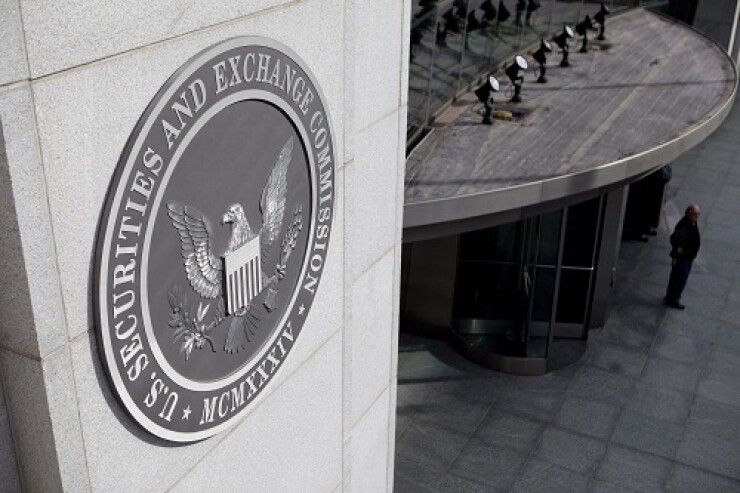A multimillion-dollar settlement with the SEC is helping clean brokerage firm Cadaret Grant's slate as it heads toward a merger with LPL Financial.
The Securities and Exchange Commission announced Monday that Syracuse, New York-based Cadaret Grant had agreed to pay more than $6 million to settle charges that it violated its fiduciary duties by failing to properly disclose conflicts of interest to its clients. Specifically, the hybrid brokerage and advisory firm was accused of not letting investors know of revenue-sharing agreements it had with its clearing broker — which isn't named by the SEC — and not directing them to less-costly options.
Those sorts of allegations are likely something any acquiring firm would want to have in the rearview mirror before a big purchase deal closes, said
"Regulatory problems can create major headaches for acquiring firms," Wojciechowski said. "So sometimes in these instances there can be a push to either resolve these issues or to clean the mess up because the acquiring firm doesn't want to have to deal with the SEC."
READ MORE:
An LPL spokesperson declined to comment on the case. A spokesperson for Cadaret Grant said the firm has a policy against discussing regulatory matters.
"Cadaret Grant is pleased to reach a conclusion to this matter that results in a satisfactory outcome for all parties involved," the spokesperson said in an email.
Cadaret Grant was started as an independent-broker dealer nearly 40 years ago and then
LPL has relied heavily on mergers and acquisitions as part of a growth plan that has seen its advisor headcount
Bill Singer, a longtime securities lawyer and recently retired author of the
"And when you are doing a deal of this nature, a $6 million fine is of no consequence to anybody," Singer said.
As for the SEC's specific allegations against Cadaret Grant, Wojciechowski called them a "tale as old as time."
"It's unfair to retail investors for brokerage firms to narrow and limit the choices they get to invest their hard earned money because they have a deal with a mutual fund family," he said. "It's unfortunate but not surprising because it's been going on for about 100 years now."
The SEC specifically accused Cadaret Grant of failing to disclose, from 2017 to early 2020, that it received revenue-sharing payments every time one of its clients invested in certain mutual fund products offered through its clearing broker. Those payments gave Cadaret Grant an incentive, according to the SEC, to recommend those products over others that provided no revenue sharing. At the very least, regulators allege, Cadaret Grant should have done more to make sure clients were aware of its conflict of interest.
The SEC similarly accused Cadaret Grant of failing to properly disclose how it made money from mutual fund products offered through a "no transaction fee" program. This program allowed clients to buy mutual fund shares at no cost. But those products often came with higher recurring fees — a fact that Cadaret Grant should have disclosed to clients, the SEC contends.
The regulator also found fault with Cadaret Grant's "cash sweeps" policies.
The SEC said Cadaret Grant had a sweeps policy that only allowed clients' assets to be moved into money markets that provided revenue-sharing payments. It also accused the firm of working with its clearinghouse to mark up the shared portion of transaction fees it received on certain mutual fund sales. Cadaret kept those markups for itself, SEC alleges, and failed to make sure customers were aware of that arrangement. The SEC noted Cadaret Grant reimbursed its clients $607,522 in markup revenue even before it began its investigation.
Apart from disclosure violations, the SEC accused Cadaret Grant of not living up to its fiduciary obligations by not directing its clients to less costly mutual fund products and failing to analyze whether some of its recommendations were in investors' best interests. Cadaret has responded to the allegations by correcting its disclosures for its various revenue-sharing arrangements and revising policies used to prevent fiduciary violations, among other things.
The firm's penalty consists of pay disgorgement in the amount of $4,213,351, interest in the amount of $828,075 and a civil penalty of $1 million. According to the SEC, Cadaret Grant is managing more than $6.8 billion on behalf of 18,353 advisory clients.






